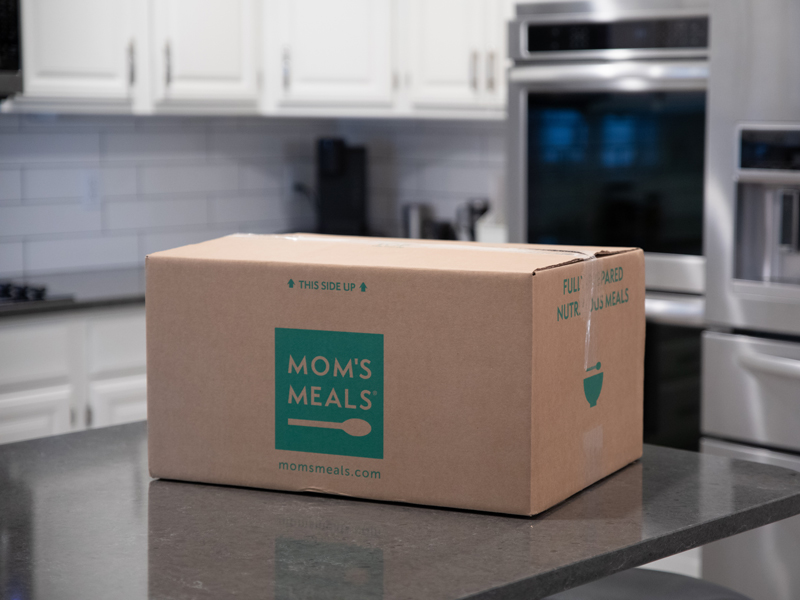The concept of food as medicine has gained considerable traction in recent years, as health plans, states and other payers are incorporating more food-based benefits into their offerings. This includes meal programs for individuals with chronic conditions, those who are homebound, post-discharge patients as well as expecting and new mothers.
Who can benefit most from meal programs
Studies have shown that home-delivered meals help improve health outcomes and lower health care costs. This is excellent news for payers, health care providers and patients alike.
Medically tailored, home-delivered meals help:
- Reduce food insecurity
- Support people eating for their chronic condition(s)
- Improve nutrition intake and reduce malnutrition
- Reduce hospitalizations and inpatient stays
Patients with chronic conditions
Many health plans are integrating medically tailored meals into their chronic-care programs. For individuals with one or more chronic conditions — such as diabetes (including gestational diabetes), cancer, heart conditions and kidney disease — medically tailored meals can help move the needle when it comes to patient outcomes and lowering costs.
A study in the Journal of the American Medical Association showed that people with chronic conditions who received condition-appropriate home-delivered meals for an average of 12 months had 16% lower health care costs compared to matched controls.
- $753 difference in monthly cost of care ($3,838 vs. $4,591)
- $712 per month savings in inpatient and skilled nursing facility visits
This translates into substantial savings for health plans, especially considering that approximately 85% of older adults have at least one chronic condition, and 90% of the nation’s $4.1 trillion in annual health care expenditures are for people with chronic and mental health conditions.
Patients in need of longer-term support
People in need of longer-term support services include a variety of audiences — from those with developmental and/or physical disabilities to older adults. Although many older adults remain independent and actively involved in their communities, many are homebound and frail, and may suffer from multiple chronic conditions.
They may also be food insecure, where they have difficulty obtaining nutritionally adequate and safe food due to lack of resources. Home-delivered meals can improve quality of diet and nutrient intake to help reduce food insecurity and nutritional risk, so individuals can remain independent in their own homes.
Some individuals in need of longer-term support are eligible for services allowed by the Home- and Community-Based Care Services (HCBS) waiver program under Section 1915(c) of the Social Security Act or other government-support programs. Since they were authorized in 1981, Section 1915(c) waiver programs have become a critical source of financing for home and community-based alternatives to institutional services.
The HCBS waiver program enables members to be cared for in their own home, preserving their independence and quality of life and, ultimately, preventing and/or delaying nursing-home placement. With approval from Centers for Medicare & Medicaid Services, programs can provide nutrition services, including home-delivered meals, nutrition counseling and nutrition risk reduction, to this group. Many states provide nutrition services in this way.
Post-discharge patients
Patients who are discharged from the hospital often require short-term support as they recover from surgery or an illness. In many cases, discharged patients prefer to return to their own home, rather than moving to a rehabilitation unit or a skilled nursing facility, but lack the support of caregivers, which would allow them to do so comfortably.
A common example is someone who just had a double-knee replacement and may be unable to prepare meals on her own due to limited mobility. Or a patient who underwent heart-valve surgery who may be restricted from driving and too weak to shop for groceries and prepare meals that adhere to the diet restrictions prescribed by their doctor.
- Research shows that proper nutrition not only helps to support patients’ recovery but also reduces the risk of hospital readmission. A study of Medicare Advantage members in a community-based care transition program that included home-delivered meals showed a 38% improvement in 30-day readmissions over no post-discharge support.
- Another study by Tufts University estimated that in addition to net cost savings of $13.6 billion for payers, expanding national access to medically tailored meals for patients with diet-sensitive conditions could help prevent 1.6 million hospitalizations annually.
New and expecting mothers
Research shows that good nutrition during and after pregnancy drives better outcomes, including healthier pregnancies, fewer complications during and after delivery and healthier babies and moms.
The key is making that nutrition affordable, convenient and accessible to pregnant women, especially those who face food insecurity due to social determinants of health. Insurance, government and community programs demonstrate that home-delivered meals are one solution.
Home-delivered meals not only help ensure good nutrition, but they can also reduce stress on pregnant women and support new mothers as they adjust to caring for their babies and themselves while they heal from delivery. A fully prepared home-delivered meals program helps make it easy to eat properly and adhere to condition-appropriate eating guidelines.
Simply Healthcare, a Florida-based health management organization serving Medicaid programs in Florida, partnered with Mom's Meals® for a year to provide home-delivered meals to support “Taking Care of Baby and Me”, a maternal health program targeting high-risk members with a history of preterm labor, preterm deliveries, high blood pressure, gestational diabetes or preexisting diabetes. Results included:
- 86% engagement rate
- 45% decrease in NICU admissions
- 35% improvement in blood sugar control
Mom's Meals can help
With nutritious ready-to-heat-and-eat meals conveniently delivered direct to homes, we take the guesswork out of eating better.
- We offer nine condition-specific menus that are nutritionally tailored to support common health conditions including heart disease, chronic kidney disease and diabetes.
- Each delicious meal is designed by registered dietitians and professional chefs, and created in USDA- and FDA-inspected facilities — providing the highest level of compliance with federal regulations governing food production.
- We partner with health plans, state governments, public and private organizations and individuals to improve health outcomes and reduce the total cost of care through better nutrition.



